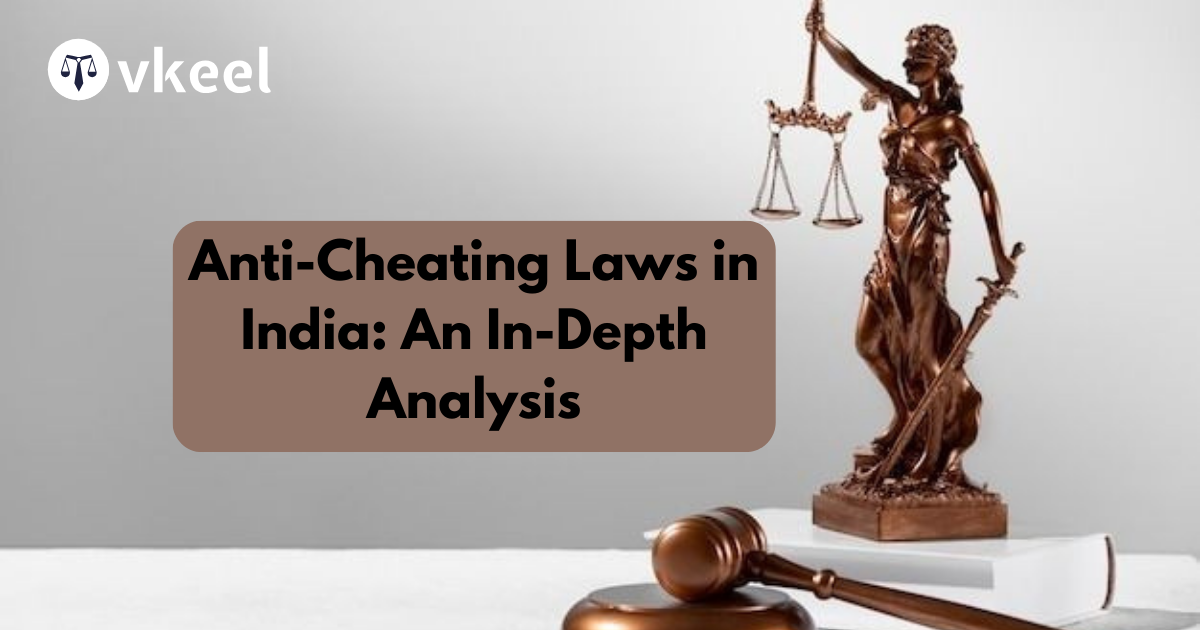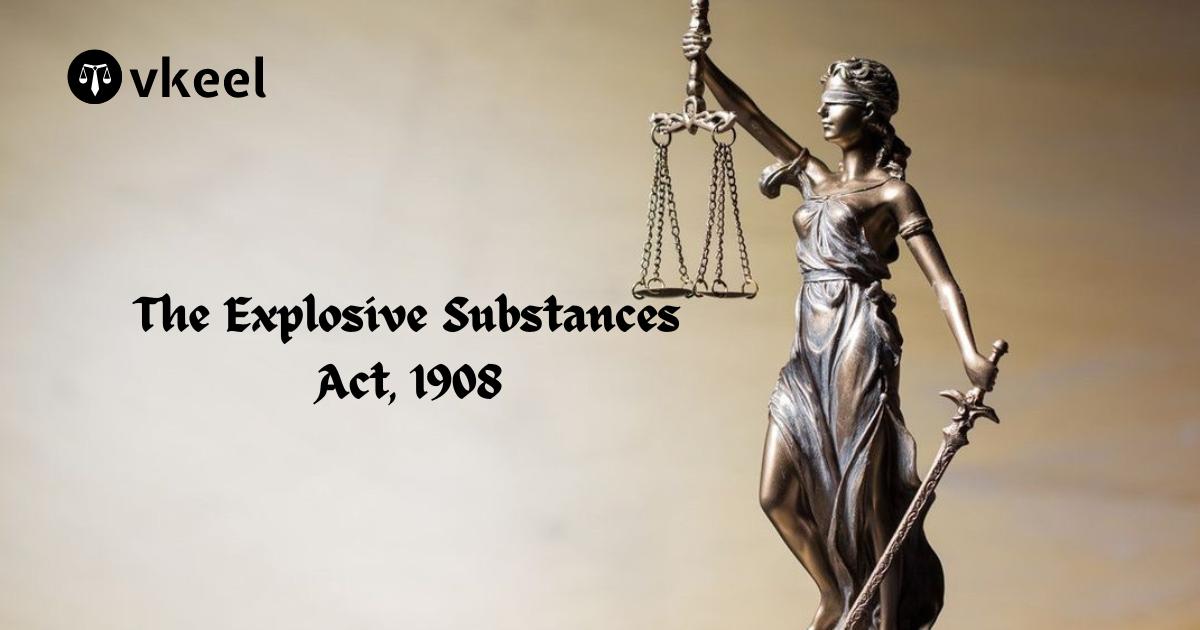Anti-Cheating Laws in India: An In-Depth Analysis
By Himanshu Kumar
Table of Contents
Introduction
In India, the integrity of examinations and educational qualifications is vital to maintaining a fair and meritocratic society. To address the issue of cheating and prevent fraudulent practices, India has enacted various anti-cheating laws and regulations. These laws are designed to deter malpractices in academic and professional examinations and maintain the credibility of educational institutions.
Anti-cheating laws in India are crucial primarily due to the imperative of maintaining the integrity and fairness of the educational and professional examination systems. With the increasing competitiveness in academic and professional fields, the prevalence of cheating undermines the merit-based selection process, leading to unfair advantages for some individuals while disadvantaging others. This not only erodes public trust in the education system but also diminishes the value of qualifications and degrees, ultimately impacting the quality of the workforce and the credibility of Indian educational institutions on a global scale.
Additionally, the rise of sophisticated cheating techniques, including digital and technological methods, has made it increasingly challenging to detect and prevent examination fraud. This dynamic environment necessitates robust anti-cheating laws to address evolving methods of malpractice and ensure that the examination process remains secure and equitable. Effective legislation and enforcement are essential to counteract these practices, uphold academic standards, and foster a culture of honesty and integrity among students and professionals.
Historical Background of Anti-cheating laws in India
The historical backdrop of anti-cheating laws in India can be traced to the colonial period when the British introduced various legal frameworks to address fraud and dishonesty in public and private affairs. The Indian Penal Code (IPC) of 1860, drafted by Lord Macaulay, laid the foundation for addressing cheating and fraud through its various sections, including those related to cheating and dishonestly inducing delivery of property. These early provisions reflected a broader concern with maintaining ethical standards in societal and administrative processes, setting the stage for more focused anti-cheating measures in the educational context.
In the post-independence era, the focus on anti-cheating laws intensified with the growth of the education sector and the need to ensure fair practices in examinations. The establishment of bodies like the University Grants Commission (UGC) and various state-specific examination regulations marked a significant development in formalizing and strengthening measures against examination malpractices. The evolving landscape of educational standards and increasing incidences of cheating necessitated more comprehensive legislation and regulatory frameworks. Over time, amendments to existing laws and the introduction of new regulations have aimed to address contemporary challenges, including technological advancements and digital cheating methods, thereby continuing the historical commitment to upholding integrity and fairness in academic and professional assessments.
Legal Framework for Anti-Cheating
- Indian Penal Code (IPC), 1860 The IPC is the cornerstone of criminal law in India and contains several provisions that address cheating. The relevant sections include:
- Section 415: Defines cheating as deceiving someone fraudulently or dishonestly to deliver any property or valuable security. This section lays the groundwork for legal action against cheating.
- Section 416: Addresses cheating by impersonation, where an individual cheats by pretending to be someone else.
- Section 420: Pertains to cheating and dishonestly inducing delivery of property. It specifically deals with cases where cheating results in the loss of property or money.
- Case Law Example: In the case of Brahm Dutt v. Union of India (1995), the Supreme Court emphasized that cheating under Section 420 IPC involves a fraudulent inducement leading to a wrongful gain or loss. The case involved the illegal procurement of a medical degree through deceitful means.
- The Indian Evidence Act, 1872 The Indian Evidence Act provides guidelines on how evidence should be presented and evaluated in cases involving cheating. It includes provisions for the admissibility of electronic evidence, which is crucial in modern cases of exam malpractice.
- The Criminal Procedure Code (CrPC), 1973 The CrPC outlines the procedure for the investigation and prosecution of criminal offenses, including those related to cheating. It includes provisions for search and seizure, which can be pertinent in cases of fraudulent examination practices.
Anti-Cheating Laws in Educational Context
- University Grants Commission (UGC) Regulations The UGC, which is the apex regulatory body for higher education in India, has established several regulations to curb examination malpractices. For instance, the UGC Regulations on Minimum Standards of Instruction for the Grant of the Degree of Master of Philosophy (MPhil) and Doctor of Philosophy (PhD), 2009, include provisions for maintaining academic integrity and preventing plagiarism.
- The Examination Act, 2009 This Act provides a comprehensive framework for regulating examinations and addresses issues related to cheating. It includes provisions for penalties against individuals who engage in fraudulent practices during examinations, as well as measures to enhance the security of examination processes.
- State-Specific Legislation Various states in India have enacted specific laws to address examination malpractices. For example:
- Maharashtra Prevention of Malpractices at University Examinations Act, 1982: This Act aims to prevent and punish malpractices in university examinations. It includes provisions for the appointment of vigilance officers and the establishment of special courts to expedite trials related to examination fraud.
- Uttar Pradesh Public Examination (Prevention of Malpractices) Act, 1995: This Act provides for strict penalties for individuals involved in examination malpractices and includes measures for the prevention of such activities.
Recent Amendments and Developments
- Amendments to the IPC In recent years, there have been amendments to the IPC to address new forms of cheating, particularly those involving technology. The inclusion of cybercrime-related provisions in the IPC has broadened the scope of cheating-related offenses, addressing issues such as digital impersonation and online fraud.
- Introduction of the National Testing Agency (NTA) The establishment of the NTA in 2017 was a significant development in the field of examination management. The NTA is responsible for conducting entrance exams for higher education institutions and ensuring the integrity of the examination process. Its role in implementing anti-cheating measures, including biometric verification and surveillance, has been pivotal in reducing exam-related fraud.
- The Digital Personal Data Protection Bill, 2023 The Digital Personal Data Protection Bill aims to protect individuals’ personal data, including information related to examinations. This legislation addresses issues related to data breaches and unauthorized access, which can be relevant in cases of cheating involving digital platforms.
Landmark Case Laws
- Suman Sood v. K.P. Jain (2003): In this case, the Supreme Court dealt with issues of cheating in professional examinations. The Court held that cheating in exams undermines the credibility of the educational system and emphasized the need for stringent measures to prevent such practices.
- State of Karnataka v. B.S. Murthy (2011) “This case involved the use of unfair means in a public examination. The Karnataka High Court upheld the conviction of individuals involved in facilitating cheating and reinforced the importance of maintaining the integrity of public examinations.
- C.B.S.E. v. Sandeep Kumar (2016) :The Central Board of Secondary Education (CBSE) challenged a decision involving a student who used unfair means during an examination. The Supreme Court upheld the CBSE’s decision to cancel the student’s results and imposed a ban on future examinations, demonstrating the judiciary’s support for strict anti-cheating measures.
Implementation Challenges and Recommendations
Despite the robust legal framework, several challenges persist in the implementation of anti-cheating laws:
- Technological Advancements: As technology evolves, so do methods of cheating. Continuous updates to legal provisions and examination practices are necessary to address new forms of malpractice.
- Corruption and Enforcement: Instances of corruption within examination boards and regulatory bodies can undermine the effectiveness of anti-cheating measures. Strengthening transparency and accountability mechanisms is essential.
- Awareness and Education: Educating students, educators, and examination authorities about the legal consequences of cheating and promoting ethical behavior are crucial for fostering a culture of integrity.
Conclusion
India’s anti-cheating laws represent a concerted effort to preserve the integrity of its educational system. The legal framework encompasses various statutes, regulations, and amendments aimed at deterring and penalizing cheating. While significant progress has been made, ongoing challenges highlight the need for continual adaptation and reinforcement of these laws. By addressing these issues and implementing robust measures, India can enhance the credibility of its educational institutions and ensure a fair and equitable system for all students.
Disclaimer:
The information provided in the article is for general informational purposes only, and is not intended to constitute legal advice or to be relied upon as a substitute for legal advice. Furthermore, any information contained in the article is not guaranteed to be current, complete or accurate. If you require legal advice or representation, you should contact an attorney or law firm directly. We are not responsible for any damages resulting from any reliance on the content of this website.






